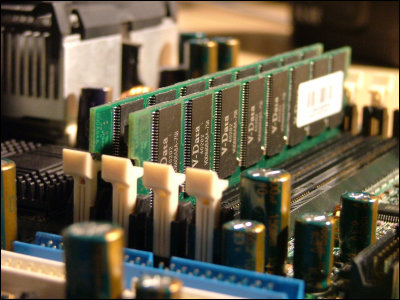Samsung's fourth-generation high-bandwidth memory 'HBM3' chip passes NVIDIA testing, to be installed in 'H20' for the Chinese market

Samsung's fourth-generation
Exclusive: Nvidia clears Samsung's HBM3 chips for use in China-market processor | Reuters
https://www.reuters.com/technology/nvidia-clears-samsungs-hbm3-chips-use-china-market-processor-sources-say-2024-07-23/

HBM is a DRAM standard developed in 2013 that achieves space and power savings by stacking chips vertically. With the rise of generative AI in recent years, the demand for high-performance GPUs has skyrocketed, and so has the demand for HBM. Therefore, passing NVIDIA's testing, which holds the largest share in the AI GPU market, is extremely important for memory manufacturers.

Samsung has previously brought its HBM3 and HBM3E DRAM to NVIDIA for testing to determine whether it would be suitable for use in AI processors. However, in May 2024, it was reported that Samsung's DRAM had failed due to heat and power consumption issues. At the time, Samsung denied the reports, stating, 'The allegations that our products are struggling due to heat or power consumption are untrue. Testing is proceeding smoothly as planned.'

Now, Reuters has reported that Samsung's HBM3 has passed NVIDIA's testing, but some sources say that Samsung's HBM3E still does not meet NVIDIA's standards and that testing is still ongoing.
Although HBM3 passed NVIDIA's tests, it will not be included in NVIDIA's flagship AI chips. Instead, it will be included in the H20, a GPU for the Chinese market with reduced performance to avoid U.S. export restrictions . According to sources, the inclusion of HBM3 in the H20 could begin as early as August 2024.

Nvidia and Samsung have not commented on the report.
Related Posts:






